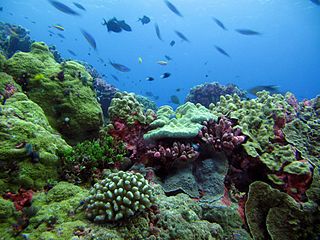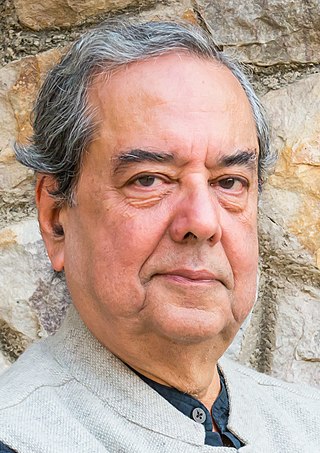
Social science is one of the branches of science, devoted to the study of societies and the relationships among individuals within those societies. The term was formerly used to refer to the field of sociology, the original "science of society", established in the 19th century. In addition to sociology, it now encompasses a wide array of academic disciplines, including anthropology, archaeology, economics, human geography, linguistics, management science, communication science and political science.

Human ecology is an interdisciplinary and transdisciplinary study of the relationship between humans and their natural, social, and built environments. The philosophy and study of human ecology has a diffuse history with advancements in ecology, geography, sociology, psychology, anthropology, zoology, epidemiology, public health, and home economics, among others.
Diversitas was an international research programme aiming at integrating biodiversity science for human well-being. In December 2014 its work was transferred to the programme called Future Earth, which was sponsored by the Science and Technology Alliance for Global Sustainability, comprising the International Council for Science (ICSU), the International Social Science Council (ISSC), the Belmont Forum of funding agencies, the United Nations Educational, Scientific, and Cultural Organization (UNESCO), the United Nations Environment Programme (UNEP), the United Nations University (UNU) and the World Meteorological Organization (WMO).

International development or global development is a broad concept denoting the idea that societies and countries have differing levels of economic or human development on an international scale. It is the basis for international classifications such as developed country, developing country and least developed country, and for a field of practice and research that in various ways engages with international development processes. There are, however, many schools of thought and conventions regarding which are the exact features constituting the "development" of a country.
Anne Howland Ehrlich is an American senior research scientist emeritus in conservation biology in the Department of Biology at Stanford University and co-author of more than thirty books on overpopulation and ecology with her colleague and husband, Stanford professor Paul R. Ehrlich, including The Population Bomb (1968), The Stork and the Plow (1995), with Gretchen Daily, and The Dominant Animal: Human Evolution and the Environment (2008). She also has written extensively on issues of public concern such as population control, environmental protection, and environmental consequences of nuclear war.

The International Institute for Applied Systems Analysis (IIASA) is an independent international research institute located in Laxenburg, near Vienna, in Austria. Through its research programs and initiatives, the institute conducts policy-oriented interdisciplinary research into issues too large or complex to be solved by a single country or academic discipline. This includes pressing concerns that affect the future of humanity, such as climate change, energy security, population aging, and sustainable development. The results of IIASA research and the expertise of its researchers are made available to policymakers in countries around the world to help them produce effective policies that will enable them to face these challenges.

Environmental education (EE) refers to organized efforts to teach how natural environments function, and particularly, how human beings can manage behavior and ecosystems to live sustainably. It is a multi-disciplinary field integrating disciplines such as biology, chemistry, physics, ecology, earth science, atmospheric science, mathematics, and geography.
The Earth Institute is a research institute at Columbia University that was established in 1995. Its stated mission is to address complex issues facing the planet and its inhabitants, with a focus on sustainable development. With an interdisciplinary approach, this includes research in climate change, geology, global health, economics, management, agriculture, ecosystems, urbanization, energy, hazards, and water. The Earth Institute's activities are guided by the idea that science and technological tools that already exist could be applied to greatly improve conditions for the world's poor, while preserving the natural systems that support life on Earth.

The International Geosphere-Biosphere Programme (IGBP) was a research programme that ran from 1987 to 2015 dedicated to studying the phenomenon of global change. Its primary focus was coordinating "international research on global-scale and regional-scale interactions between Earth's biological, chemical and physical processes and their interactions with human systems."

The World Academy of Art and Science (WAAS), founded in 1960, is an international non-governmental scientific organization and global network of more than 800 scientists, artists, and scholars in more than 90 countries.

Sustainability is a social goal about the ability of people to co-exist on Earth over a long time. Specific definitions of this term are difficult to agree on. They have varied with literature, context, and time. Experts often describe sustainability as having three dimensions. These are environmental, economic, and social. Many publications state that the environmental dimension is the most important. So in everyday use, sustainability often focuses on countering major environmental problems. These include climate change and loss of biodiversity. They also include loss of ecosystem services, land degradation, and air and water pollution. The idea of sustainability can guide decisions at the global, national, and individual levels. A related concept is sustainable development, and the terms are often used to mean the same thing. UNESCO distinguishes the two like this: "Sustainability is often thought of as a long-term goal, while sustainable development refers to the many processes and pathways to achieve it."

The Potsdam Institute for Climate Impact Research is a German government-funded research institute addressing crucial scientific questions in the fields of global change, climate impacts, and sustainable development. Ranked among the top environmental think tanks worldwide, it is one of the leading research institutions and part of a global network of scientific and academic institutions working on questions of global environmental change. It is a member of the Leibniz Association, whose institutions perform research on subjects of high relevance to society.

A global catastrophic risk or a doomsday scenario is a hypothetical future event that could damage human well-being on a global scale, even endangering or destroying modern civilization. An event that could cause human extinction or permanently and drastically curtail humanity's potential is known as an "existential risk."
Planetary management is intentional global-scale management of Earth's biological, chemical and physical processes and cycles. Planetary management also includes managing humanity’s influence on planetary-scale processes. Effective planetary management aims to prevent destabilisation of Earth's climate, protect biodiversity and maintain or improve human well-being. More specifically, it aims to benefit society and the global economy, and safeguard the ecosystem services upon which humanity depends – global climate, freshwater supply, food, energy, clean air, fertile soil, pollinators, and so on.

The World Database on Protected Areas (WDPA) is the largest assembly of data on the world's terrestrial and marine protected areas, containing more than 260,000 protected areas as of August 2020, with records covering 245 countries and territories throughout the world. The WDPA is a joint venture between the United Nations Environment Programme World Conservation Monitoring Centre and the International Union for Conservation of Nature World Commission on Protected Areas.
The International Human Dimensions Programme on Global Environmental Change (IHDP) was a research programme that studied the human and societal aspects of the phenomenon of global change.

The United Nations University Institute for Sustainability and Peace (UNU-ISP) was an institute of the United Nations University (UNU), a think tank for the United Nations system which provides a bridge between the UN and the international academic and policy-making communities. UNU-ISP is based at UNU headquarters in Tokyo, Japan, with an Operating Unit located in Germany.
Future Earth is an international research program which aims to build knowledge about the environmental and human aspects of Global change, and to find solutions for sustainable development. It aims to increase the impact of scientific research on sustainable development.

Ashok Khosla is an Indian environmentalist currently based in Delhi. He received his PhD in experimental physics from Harvard University with a doctoral dissertation in the hyperfine structure of hydrogen halide isotopes. He is the co-chair of United Nations Environment Programme’s International Resource Panel (UNEP-IRP) and is internationally known for pioneering and contributing to sustainable development. He is recognized for popularizing the word and concept of "sustainability" in international forums. He was actively involved in various projects that defined the environmental views and activities of institutions such as UNEP, UNESCO, UNU, the U.S. Academy of Sciences, IUCN, and the ICSU/SCOPE. He was also the President of IUCN and Club of Rome. Ashok Khosla is member of the World Future Council.
Planetary health refers to "the health of human civilization and the state of the natural systems on which it depends". In 2015, the Rockefeller Foundation and The Lancet launched the concept as the Rockefeller Foundation–Lancet Commission on Planetary Health.












